Three Australian families share their horrifying experience with meningococcal to help raise awareness and remind parents of the signs and symptoms.
My son lost both his hands and legs – but he’s a fighter
“Riley Nixon was one when he went into hospital. He spent his second birthday unconscious.
It was the day before Mother’s Day, Riley woke up vomiting and had a temperature -symptoms I thought were typical of a one year old getting sick. Riley’s dad took him to the local hospital and the doctors there asked us to take Riley to the hospital in Adelaide, just for precaution.
I knew something was seriously wrong during the drive from Ardrossan to Adelaide. As more time passed, Riley continued to get worse and worse. He could hardly move a muscle. I just thought, this isn’t right, this isn’t the Riley I know, the boy he’s grown up to be. No matter how sick he gets normally, he’s usually the happiest, bubbliest little boy. He’s never looked at me before and wanted to go back to sleep.
Riley didn’t have any rash at all when he went to the hospital in Ardrossan that morning, but not long after we’d hit Adelaide, he was covered in a head to toe purple rash – a sign, I now know, means the disease was very advanced in his small body.
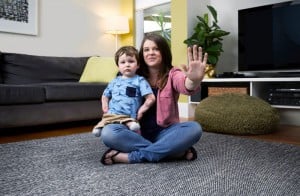
The doctors took one look at him and he was quickly rushed out the back, where he was sedated, put on a breathing tube and pumped full of antibiotics. Once he was stabilised, that’s when we were told it was meningococcal.
Riley surprised everyone with how strong he was and how hard he fought for his life – and he did. He won his battle against meningococcal, but not without sacrifices. Both of Riley’s hands and legs have now been amputated, he may be a little different in his physical appearance, but he’s still Riley, he’s still my
little boy.
I hope by sharing my family’s story, I can help build greater awareness around meningococcal and help other families, even if it’s just one family, not go through what we’ve been through.”
I thought it was just a case of the flu
“When Jenna Hansford got unwell, we really didn’t think much of it at first. After her bath in the evening, she started to feel quite chilly and was feverish, but we thought it was just a flu that was coming on.
As the night progressed, she started to vomit and then had diarrhoea. I googled her symptoms but not knowing what meningococcal does or how it works, and thinking that Jenna has already had her vaccination against meningococcal and was protected, I didn’t look into it. The vomiting had stopped by this stage, so I thought she was over the worst of it.
In the morning, Jenna woke up and wanted some breakfast. I thought, I better just check and make sure there’s no rash – because I knew that was a sign of meningococcal. I wasn’t expecting to see a rash, so when I lifted up her top, it was a shock to see the purple, spotty rash over her tummy and back.
I called the ambulance and not long after we heard the sirens racing down our street. I remember the ambulance driver saying to me, “you do realise this could be meningococcal?” But I was in shock. They knew the seriousness of what it could be, but I didn’t. It was the total unknown for me.
In the hospital, they took us in to see her in intensive care and she didn’t even look like our child anymore. Her body was so swollen, the rash had gone from a few spots to just a purple covering her whole body.
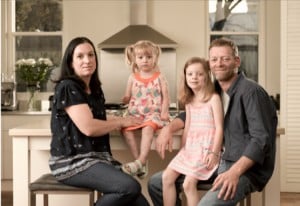
As a parent, I feel guilty and like I let my child down – the early signs were there and I dismissed it, or I didn’t act soon enough. I didn’t have a chance to be told about what meningococcal is, the early signs, and I wasn’t informed about vaccines before this happened to our family. This is what makes me so passionate to educate other people and make them aware of meningococcal.
We all can’t be complacent and just think it’s never going to happen to us. If there is one thing I want people to take from hearing our story, it’s to just appreciate what you have, and try and do your best to protect your family.
We just take each day as it comes. It’s hard and it will be a long road ahead for Jenna, but we just take one step at a time.”
Ask the questions – it might just save your child’s life
“When the doctor first told me that he suspected Jazzy had meningococcal, I wasn’t too concerned because I presumed Jazzy was covered. I said, she’s covered, she’s up to date with her vaccinations, she can’t get it bad.
It was a huge shock when we found out there were other strains of meningococcal. I was baffled, why weren’t we told about the other vaccinations? Why didn’t we know?
Time matters when it comes to meningococcal. In Jazzy’s case, it was caught very early, which means it was diagnosed very early and they could start treatment quicker. Jazzy survived without amputation but she does have neurological nerve damage. She is in pain every day with her legs and we’ve been doing more tests to try and find out why she’s in so much pain – but the outcome could have been far worse.
We’re so lucky with Jazzy’s outcome so far, and I kind of feel like because of that, it’s my job to let other families know about meningococcal disease.
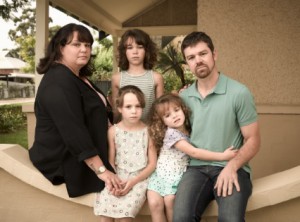
My advice to other parents is speak to your doctor and find out as much information about meningococcal as you can.
If you’re not happy with the information you’re receiving, go and see someone else. Try to find as much information as possible.
I hope our story can help other families. Parents need to know that just because their child has had all of their routine vaccinations, it doesn’t necessarily mean they’re protected.”
Know Meningococcal
93 percent of Australian parents believe that they know what meningococcal disease is, but on average nearly a third of Australian parents (28%) are not fully aware of the facts about the disease.
A national awareness campaign #KnowMeningococcal is launching in partnership with Kyly Clarke to encourage parents to know more about the devastating and potentially life-threatening bacterial infection. Find out more about the campaign here.
SYMPTOMS
The signs to look out for are: (via Meningococcal Australia)
• fever
• nausea/vomiting
• lack of energy
• tiredness/drowsiness
• confusion
• irritability or agitation
• a sore throat
Other symptoms include
•backache
•stiff or painful neck
•sensitivity to light
•twitching or convulsions
If anyone suspects meningococcal disease, they should see a doctor immediately and return if symptoms worsen.
In Australia there are vaccines available for each of the main strains of the disease
The most common serogroups of meningococcal disease in Australia are B, C, W and Y.
A vaccine is available for meningococcal C which is included in the National Immunisation Program schedule and recommended for all children at one year of age as part of the free routine immunisation.
Meningococcal C – vaccine protects against meningococcal group C disease. It is recommended for all children at the age of 12 months (as part of the free National Immunisation Program). It is also suitable for teenagers and adults. Contact your GP for more information.
Meningococcal B – vaccine launched in Australia March 2014 which is available by private script from your doctor. This vaccine is not yet subsidised by the Government. For infants, the vaccine is given in four doses – at 2, 4, 6 and 12 months of age. For children over 12 months, teenagers and adults, the vaccine is given in two doses approximately 2 months apart (for the precise timing, check with your GP). Possible side effects are a mild to moderate fever (as well as a sore arm), so your doctor may recommend giving paracetamol at the same time to babies and children under 5.
Meningococcal polysaccharide vaccine – is a combination vaccine and protects against groups A, C, Y and W. See your doctor for advice as this is generally recommended when travelling overseas to certain areas. This vaccine is not subsidised by the Government.
Find more info on vaccines here.

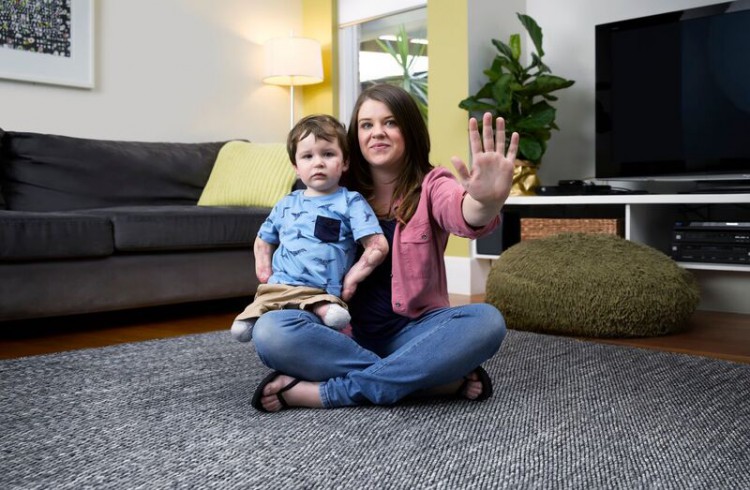



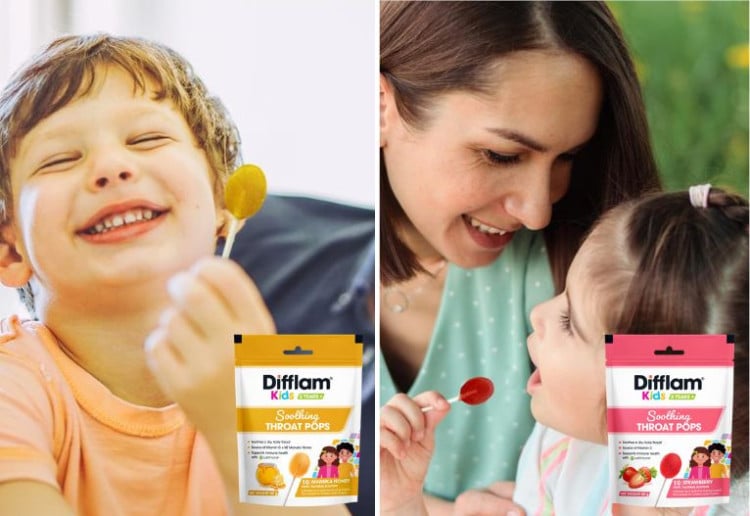



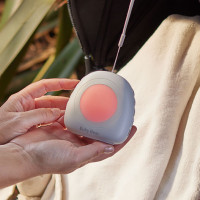
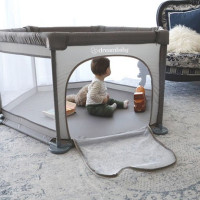

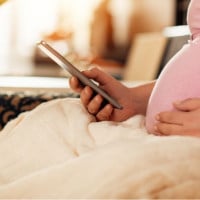








8:02 pm
11:00 pm
9:45 am
10:20 pm
4:18 pm
2:41 pm
4:09 pm
2:07 pm
9:32 am
3:21 am
11:19 pm
10:17 pm
-

-
-
-
mom90758 replied
- 30 Jun 2017 , 4:36 pm
Reply9:30 pm
8:03 pm
7:34 pm
- 1
- 2
- »
Post a comment